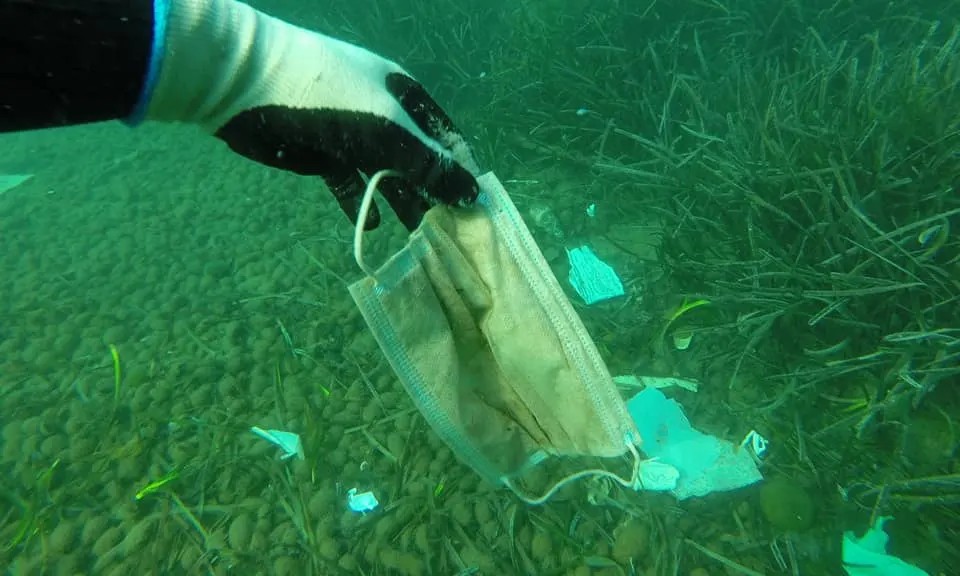Conservationists have warned that the coronavirus pandemic could spark a surge in ocean pollution – adding to a glut of plastic waste that already threatens marine life – after finding disposable masks floating like jellyfish and waterlogged latex gloves scattered across seabeds.
The French non-profit Opération Mer Propre, whose activities include regularly picking up litter along the Côte d’Azur, began sounding the alarm late last month.
Divers had found what Joffrey Peltier of the organisation described as “Covid waste” – dozens of gloves, masks and bottles of hand sanitiser beneath the waves of the Mediterranean, mixed in with the usual litter of disposable cups and aluminium cans.
The quantities of masks and gloves found were far from enormous, said Peltier. But he worried that the discovery hinted at a new kind of pollution, one set to become ubiquitous after millions around the world turned to single-use plastics to combat the coronavirus. “It’s the promise of pollution to come if nothing is done,” said Peltier.
In France alone, authorities have ordered two billion disposable masks, said Laurent Lombard of Opération Mer Propre. “Knowing that … soon we’ll run the risk of having more masks than jellyfish in the Mediterranean,” he wrote on social media alongside video of a dive showing algae-entangled masks and soiled gloves in the sea near Antibes.
The group hopes the images will prompt people to embrace reusable masks and swap latex gloves for more frequent handwashing. “With all the alternatives, plastic isn’t the solution to protect us from Covid. That’s the message,” said Peltier.
In the years leading up to the pandemic, environmentalists had warned of the threat posed to oceans and marine life by skyrocketing plastic pollution. As much as 13 million tonnes of plastic goes into oceans each year, according to a 2018 estimate by UN Environment. The Mediterranean sees 570,000 tonnes of plastic flow into it annually – an amount the WWF has described as equal to dumping 33,800 plastic bottles every minute into the sea.
News article and photo Courtesy of Guardian News & Media Ltd

